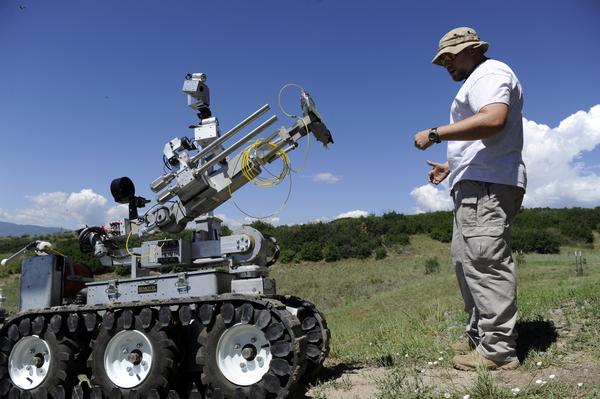When it comes to pure versatility in any heavy construction environment, there’s really nothing quite like the telescopic handler. They may be interpreted as little more than gigantic fork lift trucks, but when you take away the telescopic handlers from any busy sites in operation today you’d pretty much put the brakes on the whole project.
But however important these machines are, they remain among the most underappreciated and in some cases the most misunderstood. It’s important to remember that these are the kinds of machines that can quickly become hazardous if approached with the wrong attitude or without all the most important facts in mind, so what follows is a quick outline of some of the most common telescopic handler misconceptions perpetuating the industry right now:
1 – Telescopic Handler Driving is No Different to Standard Car Driving
Just because a telescopic handler has a steering wheel and an engine does not in fact make it anything like a car to drive. It’s a bit like comparing a bus to a boat just because the two both have seats – they’re totally different in size, purpose and the way they are handled. It’s common for a telescopic handler to be approached like a vehicle when it is by right more of a large tool. After all, it’s not as if it exists for simple transportation purposes. So when it comes to getting to grips with a telescopic handler in the safest way possible, the first thing to bear in mind is how very different from a car they really are.
2 – Telescopic Handler Training isn’t Really Necessary
Here’s where things start to become a little blurry as there is right now no official law or ruling across the UK that states you simply must take formal training before jumping behind the wheel of a telescopic handler. As such, it’s common to assume that if you have a driving license, you’re pretty much home free in terms of your abilities. Of course, common sense might tell you that this isn’t the case at all as while a driving license is great for a small transportation vehicle, it’s hardly cut out for operating a giant and hugely-powerful building tool. And if that wasn’t enough, it’s also fair to say that as time moves forward it will become more and more difficult for anyone without the necessary training to land a job or be allowed anywhere near the controls of a telescopic handler. There may be some building sites and companies across the UK that flout common sense health and safety guidelines, but they’re becoming fewer and farther between by the day.
3 – If I Don’t Drive One, I’m Not Involved in its Safe Operation
While it’s of course fair to say that the driver of the telescopic handler plays the biggest role of all in its safe operation, that’s not to say that every other person across the site doesn’t always bear at least some responsibility. In reality, the vast majority of accidents and incidents each year that involve a telescopic handler were not in fact caused by the telescopic handler itself. Instead, it’s more likely to have been the result of another piece of equipment being in the wrong place at the wrong time, another worker wandering around where they shouldn’t have been or personal protective equipment (PPE) not being used correctly. From high-visibility clothing to hardhats marked pathways and right through to pre and post-use safety checks, everyone plays a role in health and safety when telescopic handlers are used.
4 – Why Buy When You Can Rent?
Last but not least, it’s always to look upon the idea of renting with preference as you could argue that logically speaking there’s no sense in buying a telescopic handler outright. That being said, this really only applies in the case of those that are going about a single build or construction job and will never need to use this kind of plant machinery again. If however the company plans to continue taking on construction projects, to buy outright can represent a much more convenient and cost-effective idea. To buy a telescopic handler from a leading supplier means to enter into a comprehensive service agreement whereby servicing, maintenance and pretty much every ongoing concern is addressed and covered indefinitely. And if such a machine is going to be needed more than a couple of times each year, the rental costs will soon outweigh the comparable purchase costs several times over.







